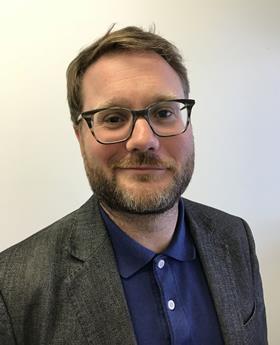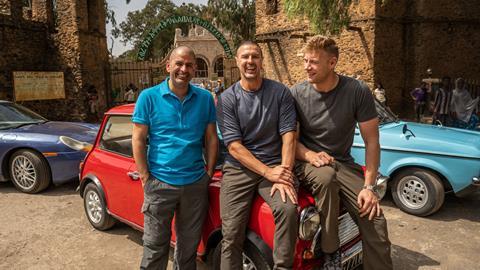Creative thinking is central to helping overcome social distancing obstacles
Observing social distancing inside a car would be quite a challenge – but what about outside? Top Gear is considering strapping one of its presenters to the roof of a vehicle while another drives, according to executive producer Clare Pizey who revealed some of the creative thinking about getting back into production during a refreshing RTS online masterclass this week
It is that kind of approach that is helping production restart across the sector, and it is heartening to hear how shows as different as Coronation Street and Remarkable’s Sunday Brunch and have swung back into action.
For the former, that means no child actors at present, convincing camera operators to do without their assistants, and shooting at odd angles to give the impression of proximity.
The soap has also had to kibosh a courtroom storyline that would have been shot on location and its scripts being sanitised in two senses – so as not to pass germs and having sex or other physical intimacy removed.
The same type of ingenuity is going to be required when it comes to funding programming too. Channel 4 wants to ramp up its level of co-production in non-scripted programming and increase its level of AFP in more mainstream parts of the schedule, as it attempts to make its reduced revenues stretch further.
There are positive signs around the ad market, but the broadcaster is being transparent about the need to take significant action. It previously planned to ringfence funding for genre-busting programmes of scale, a la Hunted, but will now be turning to Motion Content Group for that investment.
“The biggest barrier to production coming back is probably the uncertainty around insurance, where for some cases the only route at present seems to be crossed fingers”
C4’s transparency is sensible and successful shows such as Love Island and The Circle are part funded by MCG – but its involvement alters the rights situation and won’t be to everyone’s taste.
But the biggest barrier to production coming back is probably the uncertainty around insurance, where for some cases the only route at present seems to be crossed fingers.
Pact chief executive John McVay believes there around 500 unresolved claims associated with productions that had to be paused, with their value running to many, many millions of pounds.

With that level of payout already in the balance, the risks around restarting production only for a second wave of coronavirus to emerge are vast.
The producers alliance is leading a pan-industry push for the government to underwrite that risk with estimates of the fund ranging from £80m to £200m.
Every major organisation in the sector should be playing its part in that push, because right now it feels like a huge hurdle to overcome on the slow path back to normality.
- Chris Curtis is editor in chief of Broadcast






























No comments yet